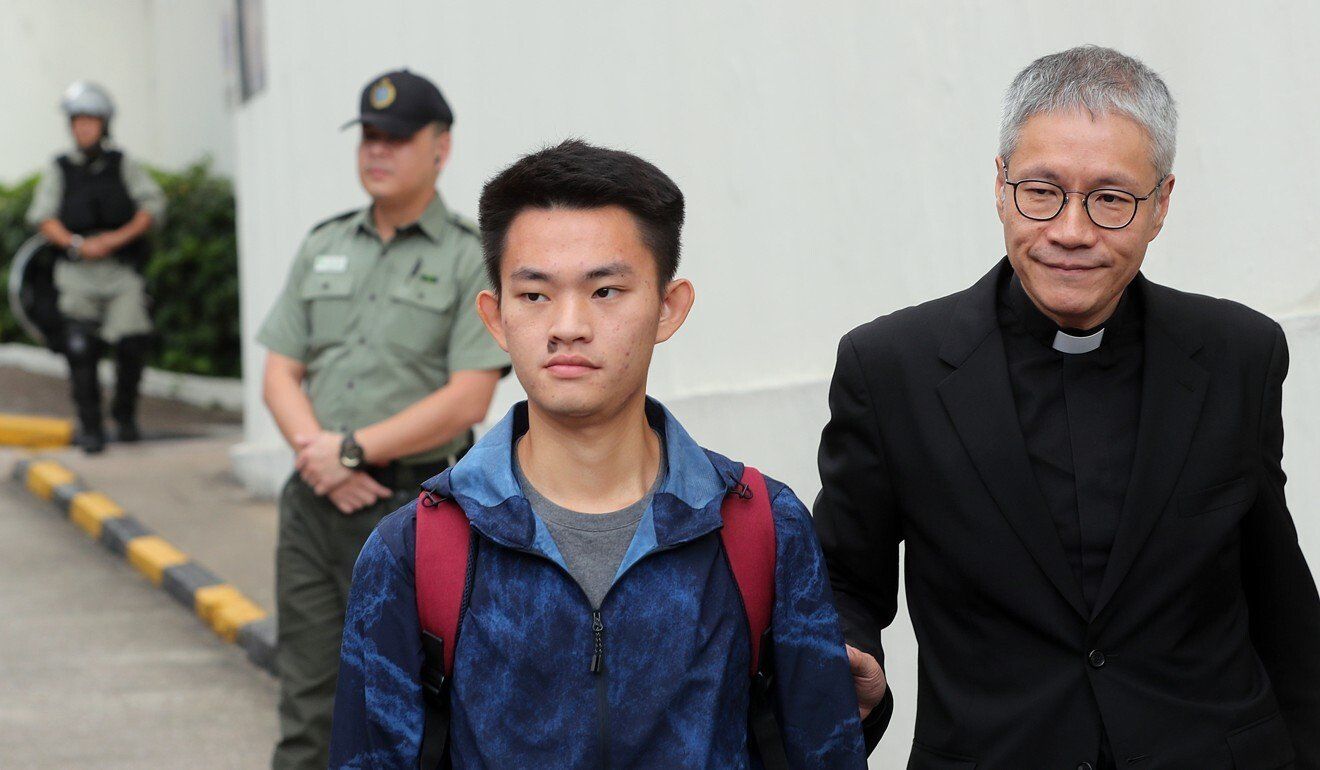Hong Kong News

Murder victim’s mother sends replica of suitcase daughter was found in to suspect
On Christmas in Hong Kong last year, Reverend Peter Koon Ho-ming received a surprise gift – a pink suitcase similar to the one that Taiwanese police found three years ago containing the body of a pregnant woman.
The suitcase was sent by the mother of Poon Hiu-wing, as a reminder that Koon must get her alleged killer, Chan Tong-kai, to surrender to authorities on the self-ruled island as soon as possible.
Koon, who has been counselling Chan for the past couple of years, said on Tuesday he had “received the suitcase, and told Tong-kai about it”.
Poon died in February 2018, and Chan, her then boyfriend, reportedly confessed to the murder during an interview with Hong Kong police.
The pair had been on holiday in Taiwan, and Chan came back to Hong Kong without his 20-year-old girlfriend. Poon’s body was later discovered in Taipei by police. Chan was jailed for money-laundering offences in Hong Kong relating to her death.
 Chan Tong-kai is escorted out of Pik Uk Correctional Institution, Clear Water Bay, by Reverend Peter Koon Ho-ming.
Chan Tong-kai is escorted out of Pik Uk Correctional Institution, Clear Water Bay, by Reverend Peter Koon Ho-ming.
But Hong Kong courts have no jurisdiction to handle the murder case because the killing took place in Taiwan.
Poon’s mother, who has asked not to be named, has been pressuring Koon to get Chan to surrender to Taiwan.
During his money-laundering trial, the court heard how Poon had told Chan she was pregnant, and that the father of the baby was her former boyfriend. Hong Kong police said Chan admitted that he slammed Poon’s head against the wall, strangled her from behind with both hands, and struggled with her on the floor for about 10 minutes until she was dead.
Police said he then folded her body into a pink suitcase and dumped it.
Frustrated at the lack of progress, Poon’s mother told Apple Daily she bought a similar pink suitcase and took it to St John’s Cathedral, where Koon works, over Christmas.
The clergyman was not there that day, so Poon’s mother mailed it to the church, along with a letter.
She said she could not stop thinking about how her daughter was killed when she bought the suitcase, and wanted Chan to know that.
On Tuesday, Koon said Chan was still living under police protection in a safe house since his release from prison in October 2019.
“For the past two years or so, I have been hoping that Tong-kai can surrender himself to Taiwan, to be responsible for what he has done, and so that the Chan and Poon families can start living a new life,” Koon said.
“At the beginning, I thought the most difficult part was getting Tong-kai to surrender in Taiwan. I have never dreamed that it would be the unwillingness from Taiwan to give Tong-kai a visa.”
Chan’s lawyers in Taiwan have already told officials there that their client was willing to surrender, Koon said, but the authorities have not yet responded.
The governments of Taiwan and Hong Kong have traded shots over Chan’s surrender and the exercise of jurisdictions.
Taiwan has insisted on government-level engagement through a formal mechanism, but doing this could give the appearance of Hong Kong treating Taiwan, which China considers a renegade province, as a sovereign state.
In a bid to have Chan sent to Taiwan to stand trial, the Hong Kong government tried to pass an extradition bill in 2019 that would have allowed for the transfer of fugitives to jurisdictions – including mainland China – with which the city lacked such an agreement. The attempt sparked protests because of local mistrust of the mainland legal system. The unrest then morphed into a wider anti-government movement that rocked the city for months.











